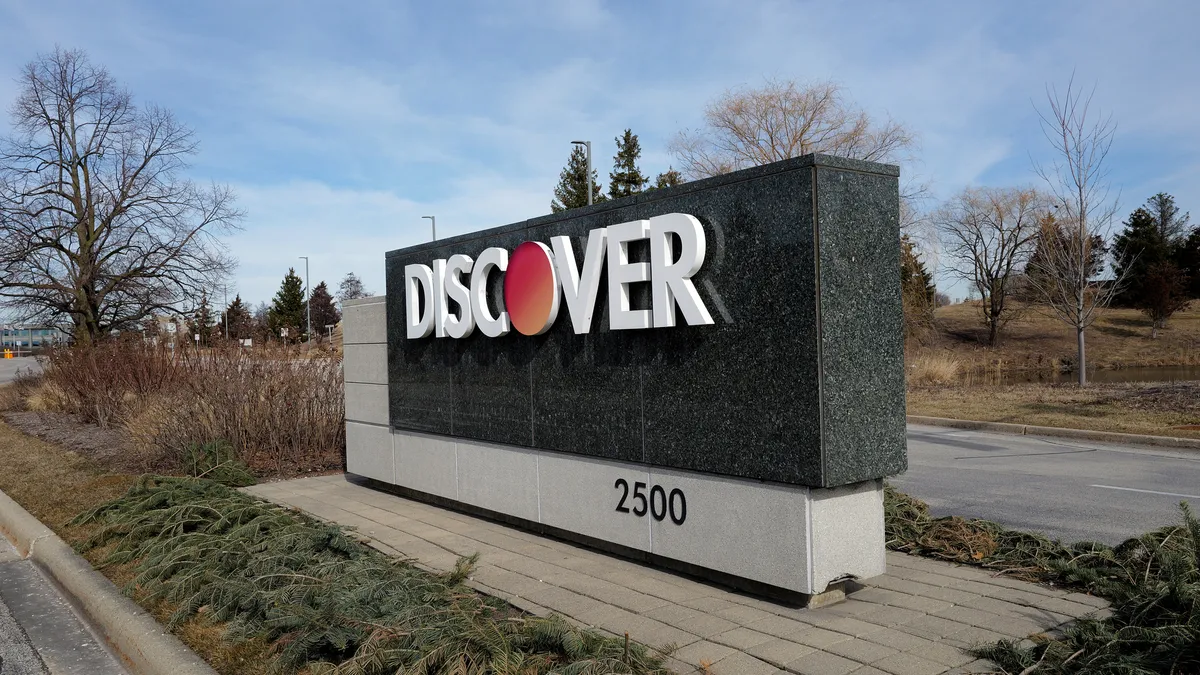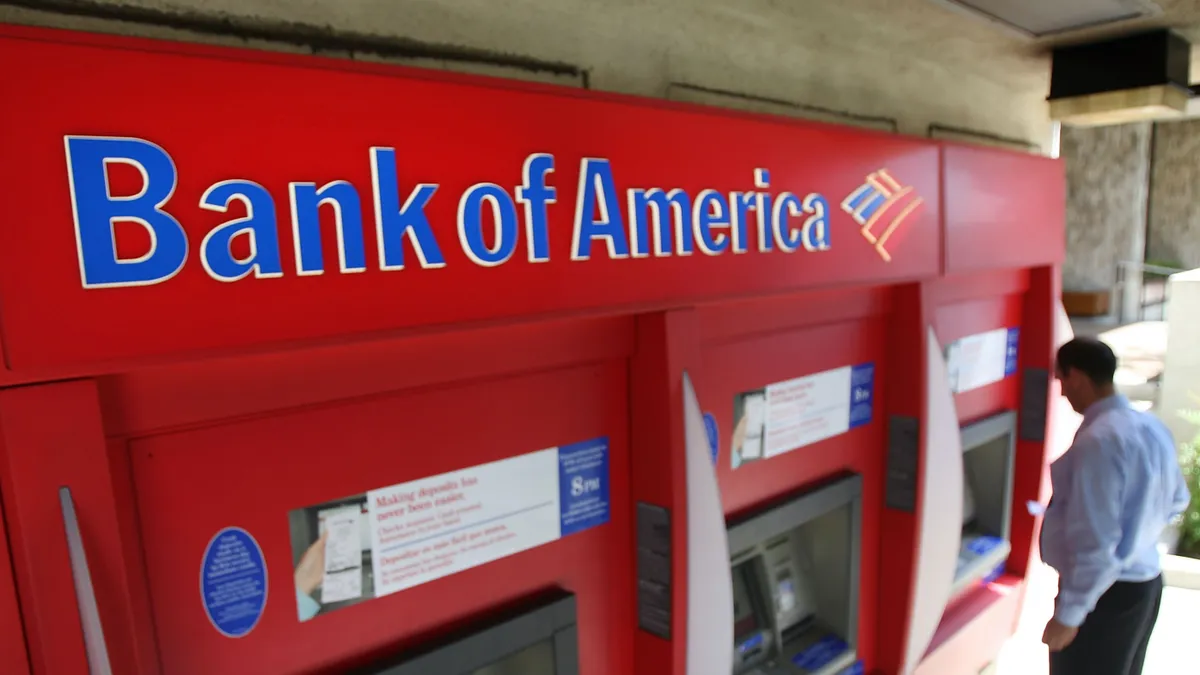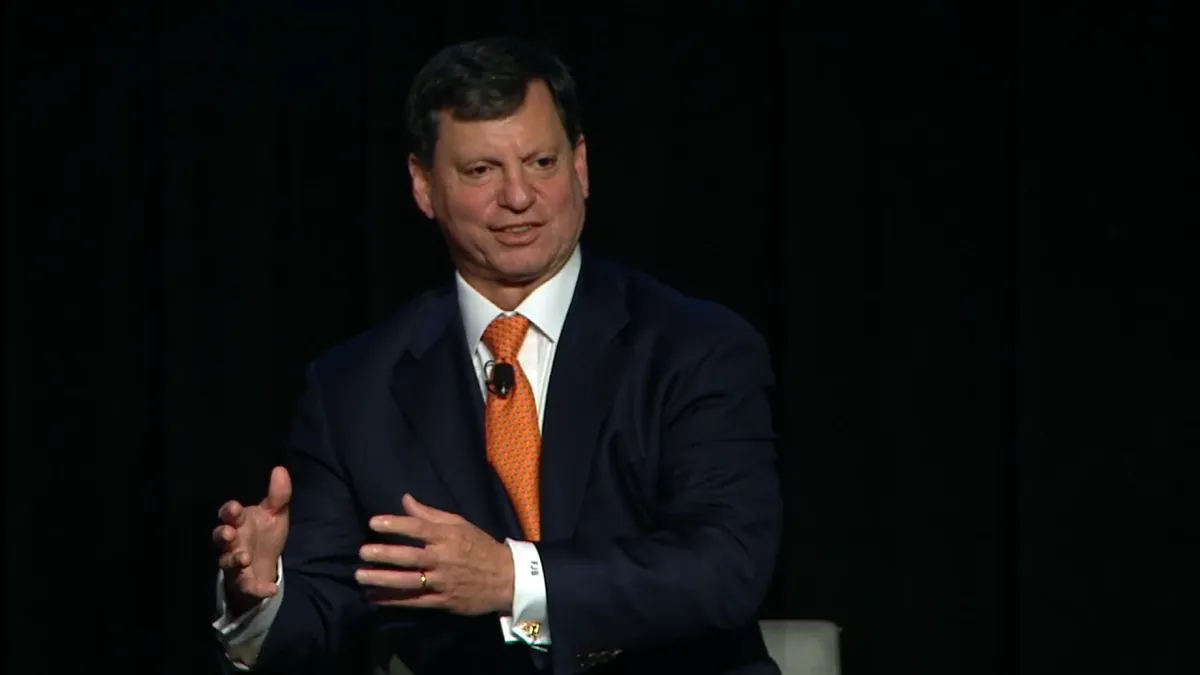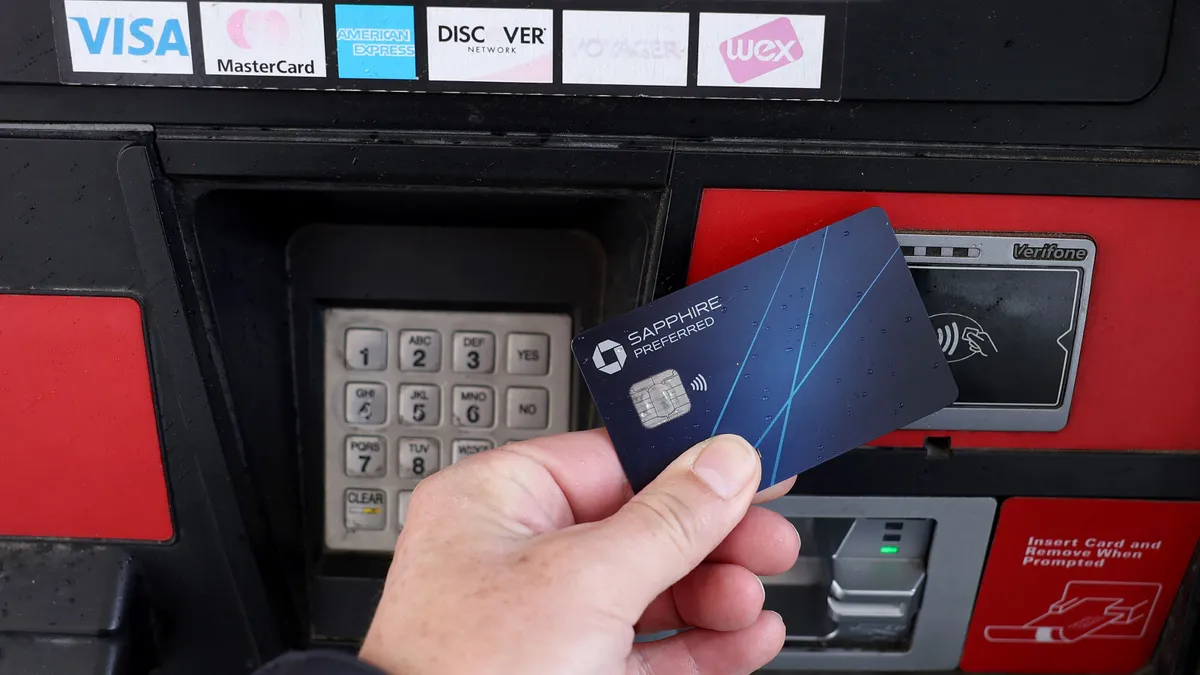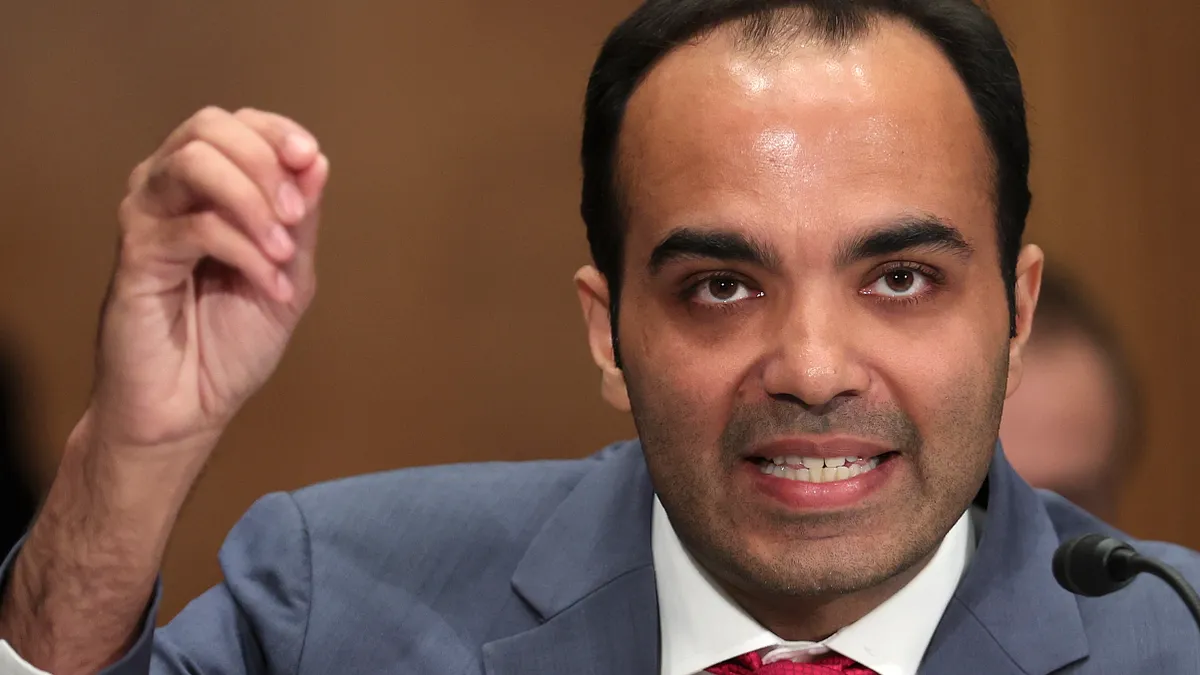The European Union, for the moment, is edging ahead of the U.S. in creating an environment where fintech entrepreneurs and their innovations can thrive, Stripe CEO Patrick Collison suggested in comments made during DC Fintech Week.
Collison’s comments came Wednesday as he spoke alongside U.S. Rep. Patrick McHenry (R-NC), the ranking Republican member on the House Financial Services Committee, as they answered questions from the conference moderator, Georgetown Law Professor Chris Brummer.
“If you like really zoom out, and just, kind of, ask ‘which region has been a more successful hub for innovation?’ I think for technology overall, you would have to say the U.S. to date – just look down the list of companies,” Collison said. “But for fintech in particular, I think Europe is every bit as strong, and at least arguably, has pulled ahead, and I largely attribute it to these ongoing structural differences.”
It’s a timely topic because lawmakers and regulators worldwide are grappling with a global surge in fintech innovation and competition by fintech startups and their more established rivals. Collison, who founded payments juggernaut Stripe with his brother, John, when they were in their 20s, is in a position to know because his company Stripe has dual headquarters in San Francisco and Dublin.
McHenry didn’t miss a beat in responding to Collison. “How do we improve that in the United States? As a policy maker, I’m desperate to ask this question,” he said, apologizing to Brummer in taking over the questioning. “You got me hooked so I want to know.”
Collison conceded that the European market may be more strictly regulated under the European Union, or at least it’s perceived to be so, but he said the EU has also fostered an environment for more competitive open markets that has allowed innovation. Collison gained experience as he and his brother built Stripe into a major payments company, offering services initially to smaller companies, and now to larger ones, in countries all over the world.
He cited the EU’s 2015 payment services directive (PSD 2), which has allowed for the open-banking trend in which banks are sharing more data and access with fintechs, and the Single Euro Payments Area created by the European Central Bank that allows for cashless euro payments anywhere in the EU.
“Those are creating very compelling new opportunities in the free market and this broader fintech landscape,” he said, referencing the Berlin-based neobank N26 and the London-based fintech Revolut.
In another example, he cited the EU’s E-money rules for overseeing the use of electronic money in payments, whether it’s stored on a card or a phone, or moved over the internet.
Nonetheless, the U.S. still led Europe in the latest statistics from research firm CB Insights measuring the amount of venture capital funding attracted by fintechs. The U.S. landed $5.1 billion in 454 venture capital fundraising events while Europe drew $3.5 billion in 259 instances, according to the CB Insights third-quarter venture report published Tuesday.
And U.S. lawmakers and regulators are moving ahead in their own way. As a baseline, McHenry noted the U.S. doesn’t currently have any definition of a digital asset, such as a stablecoin, or regulation with respect to its means of exchange.
“The only regulation there is, in existing law around the movement of digital assets, is money transmission licenses that are issued through the 50 states,” he said. “That doesn't look like a regulatory regime. It doesn't look thoughtful. It doesn't look innovative. It actually looks pretty retrograde.”
Next year, the committee will focus on defining a digital asset and reviewing a means of exchange, McHenry said.
In the meantime, he described how he and top Democrats, including House Financial Services Committee Chair Maxine Waters, have crafted a bipartisan piece of legislation that provides at least a starting point for some regulatory certainty in the fast-changing digital asset arena.
“I appreciate the trade-offs that my Democratic counterparts have been willing to make so that we can actually have a piece of legislation,” McHenry said.
In that legislation, he said they have reached agreement on at least some aspects of defining digital assets and how they could be regulated.
“There are trade-offs in a bipartisan compromise and so we've come up with a pretty ugly baby,” McHenry said. “It is a baby nonetheless. And we're grateful and hopeful that this ugly baby can grow and prosper into something that is a little more attractive.”







